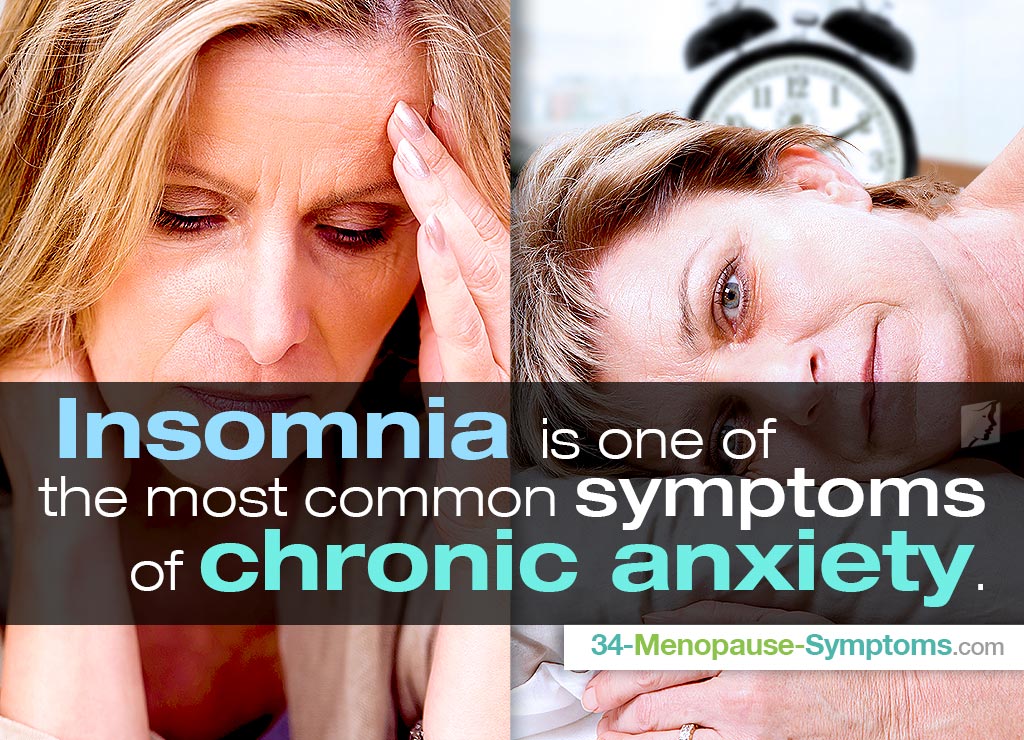It is known that anxiety affects twice as many women as it does men, and unfortunately, the condition is especially likely to present itself during the menopausal years. Some women experience it to such a severe and frequent degree that it can be recognized as chronic anxiety disorder. This condition can be very difficult to live with, affecting not only the victim, but also her friends and family. Read on to find out more about chronic anxiety.
You Can Experience both Physical and Psychological Symptoms
Understandably, many women believe that with chronic anxiety they will only experience specific emotional difficulties such as constant worry, restlessness, or maybe depression. While a whirlwind of thoughts and feelings can be expected, there are also a number of physical chronic anxiety symptoms. These can include:
- Sweating
- Headaches
- Tiredness
- Dry mouth
It is possible that you might exhibit some of these signs but not all of them, and indeed some women might suffer from physical symptoms without realizing that they are happening as a consequence of chronic anxiety.
Difficulty Sleeping Can be a Sign of Chronic Anxiety
Insomnia is one of the most common symptoms of chronic anxiety. This is an especially difficult condition because it can work in a vicious cycle; it is possible for a pre-existing sleeping disorder to cause anxiety, and vice-versa. This also means then that they can each worsen the other. Sufferers of chronic anxiety can sometimes find that their thoughts keep them awake at night, and then the lack of sleep will usually result in a worsened mood and further negativity.
Chronic Anxiety Can Affect Your Loved Ones
As well as being a considerably difficult condition to deal with for yourself, it is important to consider the effect it might have on your friends and family. Chronic anxiety attacks can present themselves in different ways. As well as feeling excessively nervous and worried they might lead you to lash out with irritability, or might cause you to recoil within yourself and keep your emotions inside. Both of these can be hurtful to your loved ones, and therefore detrimental to your relationships with them.
Exercise Is Very Beneficial for Chronic Anxiety
The fact that exercise can make you happy is a widely accepted theory. This is due to the fact that undertaking physical activity can trigger a release of endorphins in the brain - a chemical which causes feelings of positivity. It is logical, then, that regular exercise can be a worthwhile course of action for sufferers of chronic anxiety. Scientific studies have been carried out which support this idea, showing that exercise was able to help reduce tension, improve sleep, and elevate mood in general.
It Is Important to Seek Medical Help
Instead of trying to face your condition alone, it is highly recommended that you talk to a health professional about your chronic anxiety disorder symptoms. Your doctor will be able to recommend some treatments or techniques to alleviate your anxiety, or alternatively it might be beneficial to see a psychological therapist. They should be able to help you work through any issues or emotional problems you are dealing with, which should then - in time - enable you to successfully treat this condition altogether.
Chronic anxiety can manifest itself in a number of ways, and self-awareness is extremely important for at first acknowledging its symptoms, and then considering effective ways for its treatment. Learn about the causes of anxiety during menopause.
Sources
- National Health Service UK. (2016). Generalised anxiety disorder in adults. Retrieved June 9, 2017, from http://www.nhs.uk/conditions/Anxiety/Pages/Introduction.aspx
- Mayo Clinic. (2015). Anxiety. Retrieved June 9, 2017, from http://www.mayoclinic.org/diseases-conditions/anxiety/home/ovc-20168121
- Anxiety and Depression Association of America. (n.d). Women. Retrieved June 9, 2017, from https://www.adaa.org/living-with-anxiety/women
- Anxiety and Depression Association of America.(n.d). Sleep Disorders. Retrieved June 9, 2017, from https://www.adaa.org/understanding-anxiety/related-illnesses/sleep-disorders
- Anxiety and Depression Association of America. (2014). Exercise for Stress and Anxiety. Retrieved June 9, 2017, from https://www.adaa.org/living-with-anxiety/managing-anxiety/exercise-stress-and-anxiety




